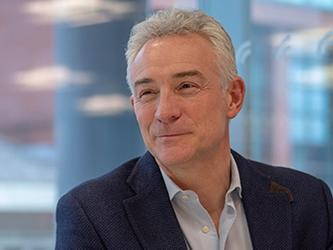Treading the line: Should MRX companies work with controversial clients?

In the current political climate, and with the public increasingly clued up in deciding which businesses meet their ethical expectations, it has arguably never been as important to consider whether (or not) to work with clients in controversial industries.
Fossil fuels, weapons and tobacco are obvious examples of areas that are deemed controversial, but in recent years the environmental, social and health impacts of other sectors – from fast food to fast fashion via airlines, automotive and alcohol – have put research agencies’ decisions on who to work with under the microscope.
However, in an uncertain financial climate, it is understandably a big step for many research agencies to give up potentially crucial income streams by cutting ties with clients. Ending or rejecting relationships with some clients or potential clients can also mean having less influence on guiding businesses to more ethically certain ground. Equally, some bigger agencies that are network owned may not have same control over relationships that a smaller independent has, as well as larger overheads to worry about.
Drawing lines
Taking up a controversial client can have tangible impacts beyond finances. Earlier this year, Havas saw four of its agencies lose B Corp status over sister agency Havas Media’s contract with oil giant Shell. B Corp status requires meeting targets in five areas – governance, workers, community, environment and customers – with businesses required to provide evidence of socially and environmentally responsible practices. Once B Corp status is reached – certified by B Lab UK – a legal commitment to maintaining these standards through amendments to articles of association is required.
Bearing the potential consequences in mind, how do insight agencies judge whom they should and should not work for? “We don’t necessarily look at clients or sectors,” says Elliott Simmonds, client solutions director at MEL Research. “We look at every brief or project we get and judge it on its individual merits. We tend to look at what this project is aiming to do, who is the audience it is working with and what is the client going to do at the end, and then how that links back to social value and how it aligns to our values as a company.
“If you can understand how the project is going to be used and you can see the potential benefit in the medium to long term, then it is one we’d consider going for.”
This client-by-client approach is one that mirrors those used elsewhere in the research industry. At Strat7, which is in the process of applying for B Corp status, a similarly flexible case-by-case analysis for incoming clients is in place. “We are not going to actively chase clients in controversial industries,” says Elaine Kent-Smith, head of brand, people and culture at Strat7. “If one came through our door and we had the opportunity to talk to them, it is finding out exactly what it is they will do with the work, how open they are to listening and what journey they are on.”
This flexible approach extends to employees. Staff may, for a variety of cultural, religious and personal reasons, find working with some firms or industries problematic. To take the example of alcohol, the openness of one staff member who drinks being asked to work on a beer account is potentially going to be completely different to another who does not drink on religious grounds.
Beyond those cases, however, the company needs to have a positive approach to engaging with staff, and to recognise personal red lines mean as much as business ones. For extremely controversial sectors, this might mean deciding to not take on a client at all if their work is likely to upset staff. “If you, hand on heart, can ask your employees to work on a project, then you’re probably making the right decision to do it,” adds Kent-Smith. “Trust your gut. You need to discuss these things. It shouldn’t be down to one person – there ought to be alignment that it’s the right thing to do.”
Some advertising agencies have taken a stand against working with polluting industries. For example, Clean Creatives is a movement of PR professionals and advertisers who are cutting their ties with the fossil fuel industry, with the pledge saying that signatories will decline future contracts with fossil fuel firms.
Jenny Chen, finance and operations director at MEL Research, says it is up to businesses to get the right balance. “We believe research is here to deliver social good,” she says. “I am not saying we are not here to make money, but we want to make money in an ethical way and a socially responsible way.”
Building a policy
David Alterman, chief executive officer at B Corp The Nursery, says there are sometimes “very arbitrary lines drawn in this debate”, and questioned why some industries get a relatively easy ride compared with others. For example, fossil fuel companies are often excommunicated under ethical business policies and practices, but airlines and car firms will most likely avoid harsher measures despite being significant polluters.
There is also the argument for working with clients who are not doing brilliantly on issues like the environment to help them change their policies. This approach can be fraught with risk – do they even want to change? Is it just greenwashing? – but the potential rewards for society if a company is open to moving in a positive direction are immense.
“We are very much a ‘be in the room’ kind of business,” explains Alterman. “I think we can help – we are more likely to do good work if we do that.”
He adds: “The world we are living in is increasingly globalised, it is increasing nuanced in terms of that is almost impossible to be a perfect corporate citizen and engage with the world, so therefore you need to accept that. That doesn’t mean we would unilaterally work with anyone who is trying to nudge in the right direction – there are lines, and some of them are arbitrary.” Smoking, to take an example, is one of the red lines at The Nursery and the business does not work with tobacco companies.
Simmonds says that research is a “mouthpiece for the audience” – and therefore has a privileged role in representing the public’s view to businesses, even if unpopular in the boardroom. “Agencies potentially need to check their ego a little bit,” he says. “If agencies are going ‘we have huge influence on clients and how they do this’, yeah, we do, but all we are doing is channelling the answers of the people who buy [a product] or the beneficiaries. You’d hope that any organisation would listen to those people. I always see agencies as the conduit, to some extent.”
What should companies drawing up policies on working with controversial industries bear in mind? “You need to work out where your red lines are,” Alterman suggests. “You have got to engage your employees and partners in the process, and understand their perspectives. You also need to communicate clearly what your company objectives are, and what your obligations are to shareholders, who are the stakeholders in the business.”
As a B Corp, the articles of incorporation are changed to include legal obligations to take into account ethical and sustainable practices, which does mean greater pressure on company policy around areas such as the environment than non-B Corps, as well as the identity and practices of future clients. However, Alterman suggests all companies should set out a policy statement for what their values are to help create trust on both sides of the client-agency relationship. “You need clarity and you need collective buy-in to that – once the rules are in place, there needs to be that buy in and that these are the red lines we don’t cross. But you have to maintain flexibility and review it.”
Ryan Barry, chief executive at Zappi, also a B Corporation, argues that the B Corp movement provides a good framework to make decisions on which potential clients to engage with. “[B Corp] is not just a piece of paper you file – it is mindset, it’s a way of running the company, and it does mean you need to think about people, planet and profit in the way you operate. One of our overarching theses is that we are not a political organisation, we are an organisation that gives consumers a voice in decisions that companies make. There’s a lot of subjectivity in where you draw the line between what is good and bad.”
Barry says that creating good policies in this area is “about setting intentions, listening and getting engagement, thinking about that and actually listening to what people say, and then iterating and co-creating”. Zappi has a presence in the US, Mexico, UK, South Africa and Singapore, and Barry co-chairs a ‘Belonging Committee’ which discusses its policies on several topics and includes representation from all the different regions in which the company is present, in addition to representatives different departments in the business, and diversity and neurodiversity groups.
Barry advocates setting out your stall early. “It starts at the top and you need to make sure you have the stomach to actually follow through on this topic. You need to develop principles intentionally. My biggest learning from six years of being on this journey is I would have loved to have started with an intention set early and then govern from there.”

We hope you enjoyed this article.
Research Live is published by MRS.
The Market Research Society (MRS) exists to promote and protect the research sector, showcasing how research delivers impact for businesses and government.
Members of MRS enjoy many benefits including tailoured policy guidance, discounts on training and conferences, and access to member-only content.
For example, there's an archive of winning case studies from over a decade of MRS Awards.
Find out more about the benefits of joining MRS here.














0 Comments